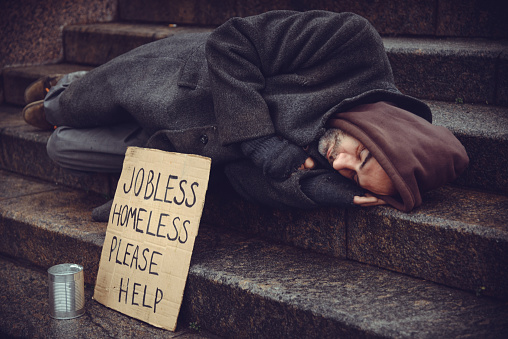Mental illness among people experiencing homelessness in the United States is very prevalent, according to the U.S. Department of Housing and Urban Development, 564,708 people were homeless. About 25% of these people were mentally ill and 45% had a mental illness. The most common types of mental illness among people experiencing homelessness are affective disorders such as depression and bipolar disorder, schizophrenia, anxiety disorders and substance abuse disorders.
How are homelessness and mental illness connected? First, mental illness may lead to cognitive and behavioral problems that make it difficult to have a stable income. Studies have shown that those with mental illnesses find themselves homeless as a result of poverty and a lack of low-income housing. Having the stress of mental illness and homelessness can also lead to increased levels of alcohol and drug abuse. Lastly, homelessness can be a dramatic event that influences symptoms of mental illness by raising psychiatric distress.
Better mental health services would help both mental illness and homelessness, homeless people with mental illness are more likely to recover and get residential stability if they have access to supported housing programs. Homeless individuals would need to have access to continued treatment and services. Research has shown that supported housing is effective for those with mental illnesses. Not only do supported housing programs offer housing, but also services such as mental health treatment, physical health care, education and employment opportunities, peer support, and living and money management training.
A significant barrier we face is the lack of funding to the implementation of supported housing programs. If you are interested in donating to help vulnerable neighbors throughout, follow the link provided on the National Alliance to End Homelessness to donate now. https://endhomelessness.org/help-end-homelessness/support-our-work/


Comments
Post a Comment
Let your knowledge, ideas, and innovation be heard. Tell us what you think and know about this topic.